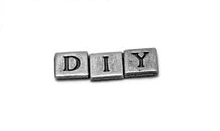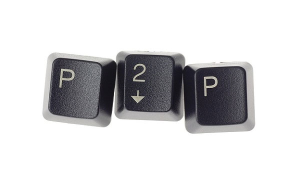ISAs and the DIY Investor
ISAs are a powerful weapon in the DIY investor’s armoury with recent changes to ISA rules bringing greater choice and flexibility. Savers starved of interest may find the tax free returns of Cash ISAs an improvement, with instant access if required or the ability to transfer to an investment product in search of higher returns. Managed Stocks and Shares ISAs allow the investor to select a provider and investment fund that matches their objectives and risk tolerance. Junior ISAs allow you to give a loved one a financial head start, and the Help to Buy ISA is there for first time buyers; greater choice comes with the inclusion of peer to peer lending and crowd funding in the Innovative Finance ISA. As well as managed products DIY Investor delivers information and education to ensure that those taking advantage of the total freedom offered by a Self-Select ISA  are able to make informed investment decisions and we invite you to share your experience with the community.
are able to make informed investment decisions and we invite you to share your experience with the community.
Introducing ISAs
Individual Savings Accounts – ISAs – allow UK taxpayers to save or invest up to £20,000 (tax year 2017-8) without paying tax on any interest they receive. There are two key variants of managed product; Cash ISA
Stocks and Shares ISA
Much of the content in the ISA section will focus on the Self Select ISA which is a tax-wrapped account that allows the DIY investor to make the investment decisions. ISAs have been around for fifteen years now and with increasing subscription rates it has been estimated that by fully subscribing each year and achieving an investment return of 5% p.a. after fees, it is possible to build up a £1 million ISA pot within 29 years.  Read more
Read more
Cash ISAs
Unless you are tax exempt, you pay tax on any interest on savings you earn; you may not even realise it because 20% of your interest is deducted before you receive it. Higher and top-rate taxpayers have to declare their earnings to the taxman and then pay the extra tax. Cash ISAs are savings accounts that allow you to save without paying tax on any interest that you earn. Each year you have an ISA allowance, which is an amount you can save into a tax-free account and this resets at the beginning of each tax year – it cannot roll over, if you don’t use it in a particular tax year it is gone forever. The allowance for the 2017-18 tax year is £20,000 all of which can be in cash.  Read more
Read more
Stocks and Shares ISAs
A Stocks and Shares or Investment ISA is a tax free wrapper that holds stock market and other types of investments; there is the risk that the value of your investments could go down as well as up. Each tax year you have an ISA allowance, which is the amount you can put into tax-free savings and investments and that amount resets every new tax year; if you haven’t used it by midnight on 5th April, you lose it. Whilst past performance does not guarantee future returns, Moneyfacts reported that 90.7% of ISA funds grew in the 2014-5 tax year with an average gain of 7.3% compared with a 1.53% return from Cash ISAs. Stocks and Shares ISAs are available from a whole range of investment platforms where you will find a lot of historical and product data to inform your decision and also the potential to take full control of investment decisions with a Self-Select ISA.  Read more
Read more
ISA Changes in 2016
Following on from the greater flexibility that came with the introduction of the New ISA or ‘NISA’ in July 2014 several more rule changes come into force this year, helping you get even more out of your savings and investments. Help to Buy ISA Innovative Finance ISA Estate Management Flexible ISA Unrestricted Transfers between ISAs  Read more
Read more
Help to Buy ISA
The Help to Buy ISA launched on 1st December 2015 in order to help first-time buyers get onto the property ladder. It is a type of Cash ISA that allows first-time buyers to save up to £200 a month which the government then tops up by 25%. An initial deposit of up to £1,000 can be made and if subscribing the maximum allowance, the government will top the account up by the equivalent of an additional £50 per month. The government bonus is capped at £3,000 so the maximum amount you can save into a Help to Buy ISA is £12,000, but accounts are limited to one per person rather than one per home so people buying together can each receive the government bonus as long as they have not purchased or had an interest in a property in the UK before.  Read more
Read more
Innovative Finance ISA
The Innovative Finance ISA allowed savers using peer-to-peer lending platforms to receive tax-free interest from April 2016. Peer-to-peer (P2P) lending platforms that allow savers to lend directly to borrowers – individuals or companies – have grown exponentially and by the end of 2015 the amount lent was estimated to have passed £4 billion. By cutting out traditional lenders such as banks and building societies, borrows are able to achieve extremely competitive loans whilst lenders are able to beat the savings rates on offer on the high street.  Read more
Read more
Lifetime ISA
From April 6th 2017 anyone between the ages of 18 and 40 will be able to save into a new, more flexible, ISA wrapper and use the proceeds to either get a foot on the housing ladder, or provide for their retirement. The Lifetime ISA, announced in the 2016 budget, rewards savers by contributing £1 for every £4 they put away, and is seen by many as a step closer to a Pension ISA which would harmonise the tax treatment of personal pensions and ISA wrappers. Those contributing to a Lifetime ISA (inevitably a ‘LISA’) can save up to £4,000 per year towards a first home or their retirement and receive a 25% bonus from the government.  Read more
Read more
Self-Select ISA
A Self-Select ISA is a type of stocks and shares ISA (as opposed to a Cash ISA) which gives the DIY investor total control of the investments that are held within it, subject to prevailing ISA rules. Self-Select ISA is a tax wrapper that allows you to invest in the stock market but with no fund manager making investment decisions, you have freedom to choose what assets you hold and when you trade them, putting you in complete control. These accounts are usually offered by execution-only (XO) stockbrokers or wealth management companies and (may) generate returns that are almost entirely free from income and capital gains tax.  Read more
Read more
ISAs – Join ‘the Club’
The ISA has a vital role to play in any long-term investment strategy and once the calendar shows 6th April, that 2017-18 allowance will be gone forever. Once the preserve of an elite group of stock pickers, the ‘ISA Millionaires’ Club’ has been expanding of late – due in part to above-inflation increases in subscription levels; investors can shelter £20,000 in the current tax year with total flexibility around the combination of cash and stocks and shares. But it is not only subscription levels that account; having existed for more than 15 years, ISA asset growth points to the benefits of long-term investing. Brewin Dolphin calculates that an investor making the maximum subscription each year and achieving a 5% return after fees could achieve a pot of £1 million within 29 years.  Read more
Read more
ISA Inheritance
Changes to ISA inheritance rules implemented in April 2015 brought an end to what had been seen as an unfair and punitive ‘death tax’, with up to 150,000 people a year set to benefit by inheriting their partner’s ISA tax benefits. Before then upon the death of an ISA account holder died, the account was closed and the tax-free status of the investment terminated; the new regulations reverse this as long as certain conditions are satisfied.  Read more
Read more
Juinor ISAs in Action
According to the Institute for Fiscal Studies, those born in the 60s and 70s are the first generation since the Second World War to be poorer than their parents. Those leaving further education in 2016 face the prospect of student debt in excess of £50,000, fierce competition for employment , wage stagnation and ‘gazumping’ has returned to London’s super-heated housing market. According to the Office for National Statistics there were over 800,000 births in the UK last year, an increase in the birth rate of 18% in a decade and it seems that the ‘Bank of Mum and Dad’ is going to have to work harder than ever in order to be able to help out in the future.  Read more
Read more

 are able to make informed investment decisions and we invite you to share your experience with the community.
are able to make informed investment decisions and we invite you to share your experience with the community. 

















